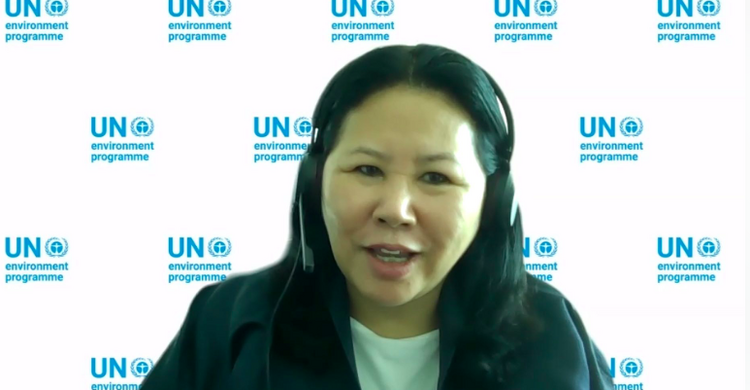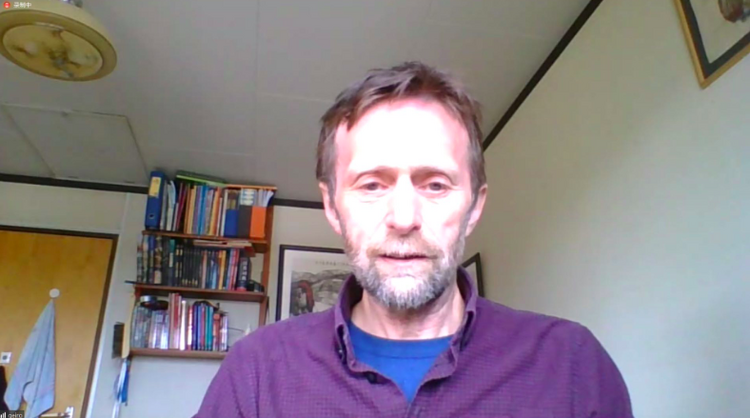Despite the impact of the global spread of COVID-19 and changes in the international situation, the global recovery and the establishment of a "new normal" is gradually made possible. How can we achieve equitable recovery and low-carbon development aimed at carbon neutrality under the new normal of pandemic prevention and control? How will the cultural industry address cross-cultural communication? ICCSD held the Third Meeting of the First Advisory Committee on April 28, and the advisory members offered various suggestions and expressed their views.

Hans d'Orville
Chairman of Advisory Committee of ICCSD and Former Assistant Director-General for Strategic Planning of UNESCO
The cultural and creative industry is not only one of the fastest-growing industries in the global economy, which creates a lot of jobs for society, but also an extremely vulnerable industry which has been hit hard by the COVID-19 pandemic. Solving the current difficulties requires the establishment of a stable creative ecosystem.
Culture can help adapt to digital transformation, extend industrial chains and achieve sustainable development, while also bridging the gap, improving inclusiveness, resolving conflicts and bringing peace. We should pay more attention to the importance of cultural diversity, the strengthening of unity and solidarity at all levels of society, and the promotion of intercultural dialogue and cooperation.
Meanwhile, starting with cultural innovation, we will promote knowledge & skill sharing and innovation concept popularization by creating high-quality education and promoting lifelong learning. We will grasp the opportunity offered by digital development to strengthen scientific and technological collaboration, realize the prosperity of culture and diversity of cultural expression, and ultimately build a low-carbon, green and sustainable production and consumption model which will contribute to the realization of the UN Sustainable Development Goals (SDGs).

Dechen Tsering
Regional Director, Asia and the Pacific Office, United Nations Environment Programme
The number of international initiatives to fight plastic pollution has increased in recent years. But voluntary initiatives alone cannot drive the system change required or achieve the expected global goal. So we are in dire need of a more binding and comprehensive international framework.
The fifth UN Environment Assembly (UNEA 5.2) adopted a resolution which aims to prepare a legally binding global agreement by the end of 2024. In the next two years, Member States will jointly address the full lifecycle pollution of plastic within the agreement. This requires us to make concerted efforts in all aspects, including plastic production, use, collection and recycling, and give play to the key role of governments and enterprises. An integrated and collective manner is needed to end plastic pollution.
We advocate redesigning products to reduce unnecessary packaging, innovating and developing environmentally friendly materials to replace plastic, and creating new jobs to promote a shift to a comprehensive circular economy. Moreover, we should establish a professional economic model to determine the cost of pollution, closely integrate plastic pollution control with economic production activities, and follow the principle of natural capital accounting on the basis of full consideration of external factors, so as to encourage enterprises to vigorously take action and assume social responsibilities.

Mehri Madarshahi
Former Senior Economist, UN Secretariat
Impacted by COVID-19 and the international situation, the global economy has witnessed hampered growth, the energy crisis has intensified, and the ecosystem has come under unprecedented pressure. As we stand on the brink of a climate catastrophe, countries should uphold the principles of equity, flexibility and differentiated responsibilities, strengthen cooperation in the context of development to address the climate crisis, and implement action plans in accordance with the SDGs and the Paris Agreement.
Developed economies should take the lead in fulfilling their responsibility to reduce carbon emissions and honor their commitment of offering financial and technological support. At the same time, they should assist developing countries in tackling climate change and create necessary conditions for achieving the SDGs.
Countries should develop a concrete framework for achieving targets that prioritizes reducing and eliminating greenhouse gas emissions within their own borders rather than achieving net zero emissions through international transfers. We must halve emissions within a decade to reduce the severe effects of climate change.

Charles Landry
Founder of the Creative City Concept
Urban renewal and green transformation require strengthening the connection among decision-making institutions, academic research organizations and commercial entities, so as to build a cross-sector think tank decision-making system which will support the formulation and implementation of policies throughout the process.
In the development of industrial cities, the protection and transformation of old industrial sites have gradually evolved into a highlight for the development of creative and cultural industries, and factories and old buildings are increasingly regarded as the core cultural assets for building city brands and highlighting historical connotations.
We need to, with creative and cultural events as a booster, promote successful cases around the world, make the concept of carbon neutrality accessible to all sectors of society, and engage more stakeholders for a carbon-neutral and equitable recovery.

Geir Orderud
Senior Researcher, OsloMet, Oslo Metropolitan University, Institute for Urban and Regional Research
It is a current priority to consider equity in carbon neutrality from different dimensions. First of all, procedural justice and effect distribution should not be neglected. On the premise of ensuring a reasonable implementation process, results should be fully predicted to achieve the set goal.
Second, while continuing to promote carbon neutrality and equity as a universal standard, we should implement policies in a cultural context. In addition to focusing on the impact of climate change on current generations, intergenerational factors such as the well-being of future generations should also be included in decision-making, and the shift should be accelerated from a human-centered public opinion environment to a biology-centered mindset and cultural system that focuses on global species diversity.
Finally, in the economic field and environmental movement, I suggest flexible adherence to "the polluter pays principle", a practical approach to balance willingness and capacity to pay, and a focus on differences in capacity to pay at the center of economic planning and policy making, to ensure a truly equitable global recovery from the pandemic.
On April 28, 2022, ICCSD held the Third Meeting of the First Advisory Committee in Beijing. A total of 11 guests from different countries attended the conference online and delivered keynote speeches.